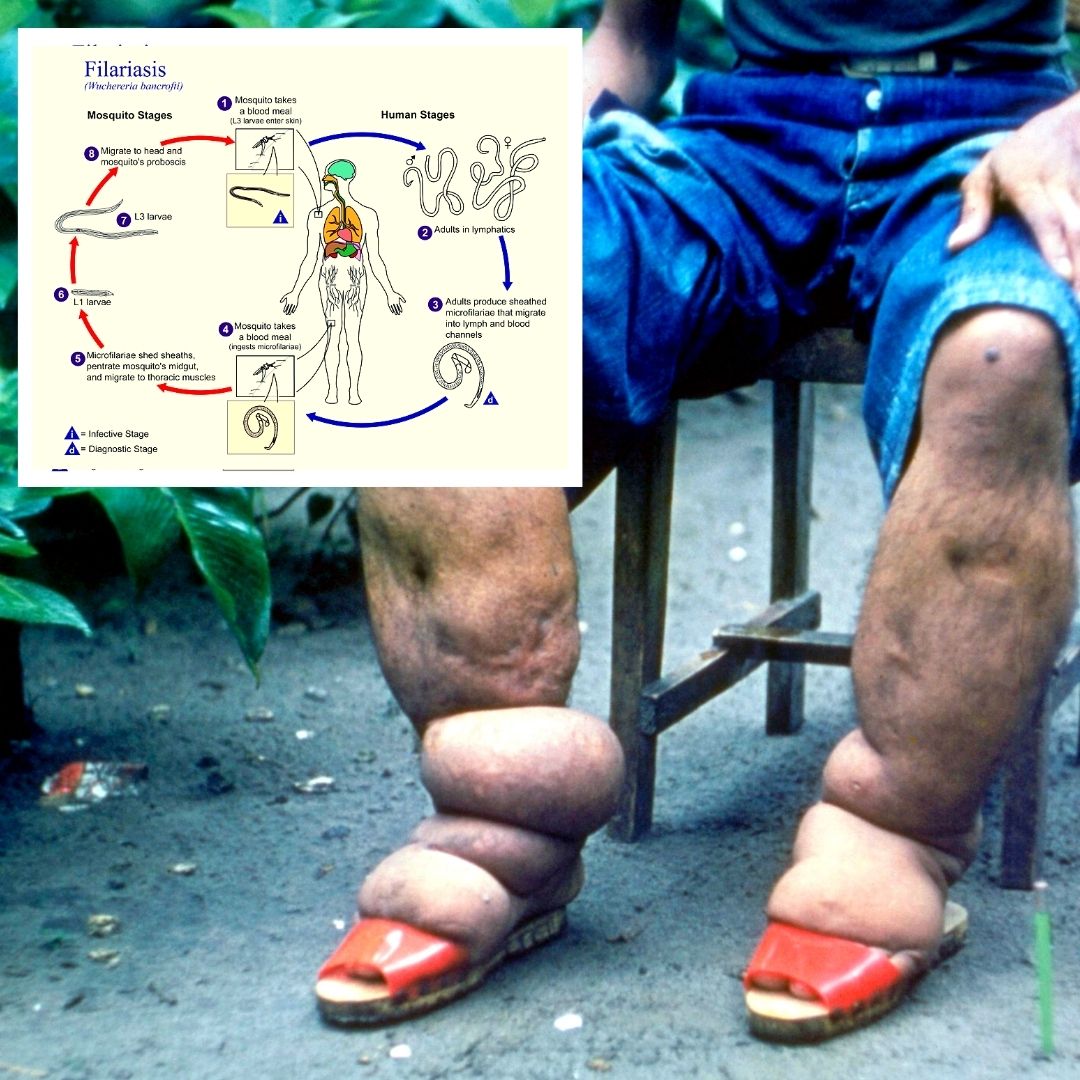
Photo Credit: Wikimedia
Impact Of Lymphatic Filariasis On Affected Community- All You Need To Know
Writer: Rafia Tasleem
She is pursuing Masters in Mass Communication 2nd Year from Aligarh Muslim University. She has completed her graduation in Political Science honors from AMU.
India, 3 Jan 2022 12:56 PM GMT | Updated 3 Jan 2022 1:01 PM GMT
Editor : Snehadri Sarkar |
While he is a massive sports fanatic, his interest also lies in mainstream news and nitpicking trending and less talked about everyday issues.
Creatives : Snehadri Sarkar
While he is a massive sports fanatic, his interest also lies in mainstream news and nitpicking trending and less talked about everyday issues.
India bears approximately 40 per cent of the global LF burden. The disease can cause abnormal growth of body parts and can lead to disability, social stigma, and isolation.
The Social Stigma Around Lymphatic Filariasis
Not only NTDs but various other diseases become the cause of social exclusion and discrimination for the affected community, leading to psychological distress in patients. There are several stigmas associated with LF that harm the affected community's socio-economic state. They are often excluded, boycotted from public gatherings, and made to feel left out and unaccepted in society. Both males and females confront these stigmas differently for the sake of their respective genders.
The Global Programme for the elimination of Lymphatic Filariasis (GPELF) conducted a study to understand the psycho-social impact of LF on the affected people. It was found that stigma, self-perception, and social misperception about the disease are widely prevalent as 1/4th of the study population were not aware of the causes of LF, and almost half of the cases did not know whether it is a communicable disease or not. More female cases avoid major festivals and public places than male cases. More female cases feel shame, embarrassment, inferiority, unattractiveness, economic dissatisfaction, frustration, isolation, and hopelessness than males. Male cases reported self-stigma, problematic marital and sexual life. Their food should not be shared; they shouldn't get married, and engaging in employment are other stigmas that people with LF face.
Economic Impacts On LF community
The aim of this study was to assess the analyse the impact of Lymphatic Filariasis on those individuals suffering from the disease in the two states of Bihar and Odisha, India by assessing the differences in the expenditure on LF treatment with varying grades of Lymphoedema, the effect of acute attacks, workdays lost due to LF, and the impact of it on both men and women. The final results showed that there was a prevalence of 22.8 per cent of LF in the study community. The monthly LF expenditure was around 5% of the monthly income and 1/3rd of the total monthly health expenditure of the households. A 7.7 per cent and a further 23.3 per cent increase in the money spent on LF from grade 1 to grade 2 and to grade 3 LF cases, respectively, with an additional 18.5 per cent more money spent on dealing with the acute episodes. There is a 60 per cent increase in the number of working days lost in cases with acute attacks. Meanwhile, patients who lost working days due to chronic or acute forms of the disease spent 31.5 per cent more than those who did not.
There was a 10% increase in the number of acute episodes in grade 3 compared to grade 1 or grade two Lymphoedema cases. There was no difference between the genders in the numbers of acute episodes, but females spent more than males on Lf treatment. These estimates may help authorities understand the cost of neglecting Lymphatic filariasis and motivate them to rethink and redesign their programs, as per Leprasociety.
Since Lymphatic filariasis is a communicable disease and there is a lack of awareness about this disease in society, the Government and health departments can organize various programs to increase awareness about the disease and take precautions to avoid the spread. Since there is no vaccine to cure lymphatic filariasis, the most effective method to control the disease is prevention. Drugs that lower the levels of microfilariae in the blood will help the individual patient and prevent transmission to another person.
Also Read: National Deaf Chess Champion Malika Handa 'Hurt' After Being Denied Job, Cash Reward By Punjab Govt
 All section
All section













